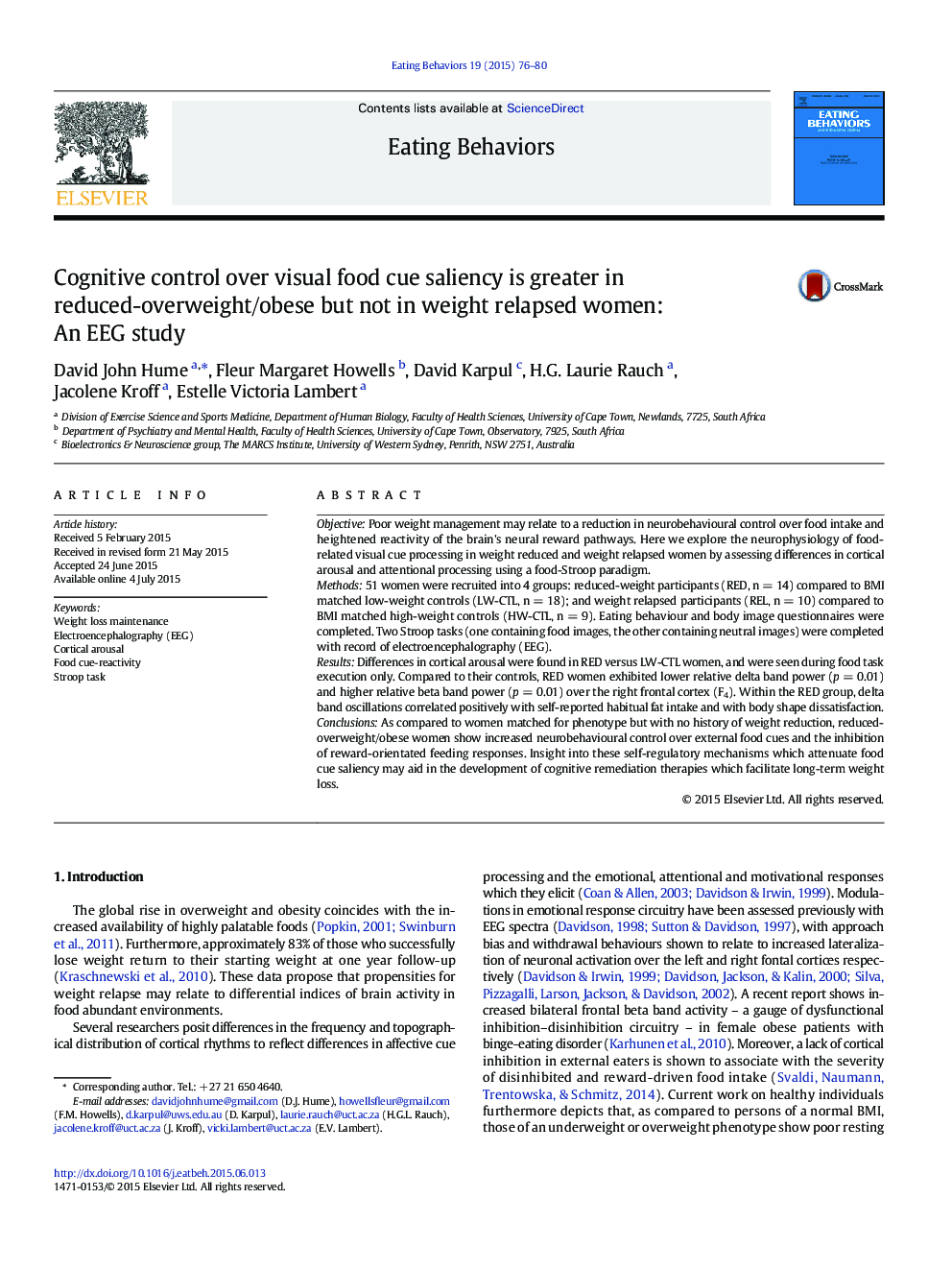| کد مقاله | کد نشریه | سال انتشار | مقاله انگلیسی | نسخه تمام متن |
|---|---|---|---|---|
| 906290 | 1472884 | 2015 | 5 صفحه PDF | دانلود رایگان |

• Differential measures of cortical activity were dependent on food cue presentation.
• Food cues induced blunted delta power and excess beta power in successful dieters.
• Differences in cortical arousal were restricted to the right frontal cortex.
• Cortical rhythms correlated with eating behaviour and concern for body shape.
ObjectivePoor weight management may relate to a reduction in neurobehavioural control over food intake and heightened reactivity of the brain's neural reward pathways. Here we explore the neurophysiology of food-related visual cue processing in weight reduced and weight relapsed women by assessing differences in cortical arousal and attentional processing using a food-Stroop paradigm.Methods51 women were recruited into 4 groups: reduced-weight participants (RED, n = 14) compared to BMI matched low-weight controls (LW-CTL, n = 18); and weight relapsed participants (REL, n = 10) compared to BMI matched high-weight controls (HW-CTL, n = 9). Eating behaviour and body image questionnaires were completed. Two Stroop tasks (one containing food images, the other containing neutral images) were completed with record of electroencephalography (EEG).ResultsDifferences in cortical arousal were found in RED versus LW-CTL women, and were seen during food task execution only. Compared to their controls, RED women exhibited lower relative delta band power (p = 0.01) and higher relative beta band power (p = 0.01) over the right frontal cortex (F4). Within the RED group, delta band oscillations correlated positively with self-reported habitual fat intake and with body shape dissatisfaction.ConclusionsAs compared to women matched for phenotype but with no history of weight reduction, reduced-overweight/obese women show increased neurobehavioural control over external food cues and the inhibition of reward-orientated feeding responses. Insight into these self-regulatory mechanisms which attenuate food cue saliency may aid in the development of cognitive remediation therapies which facilitate long-term weight loss.
Journal: Eating Behaviors - Volume 19, December 2015, Pages 76–80